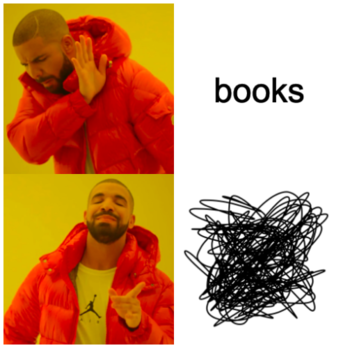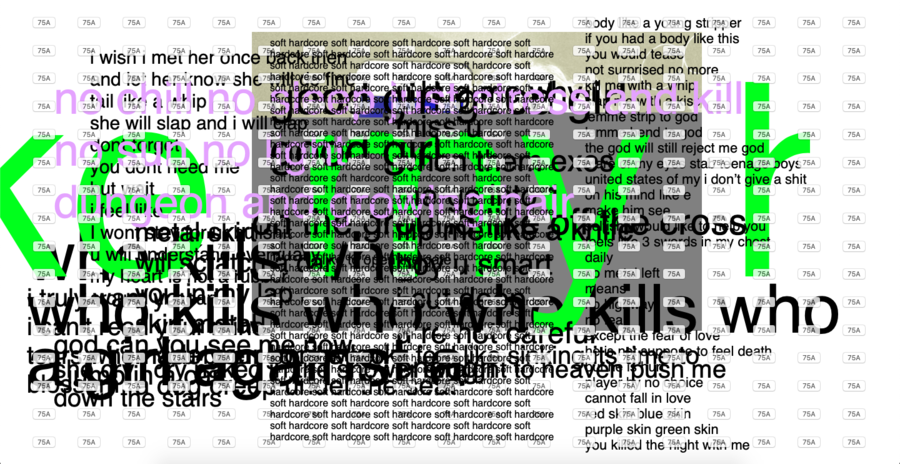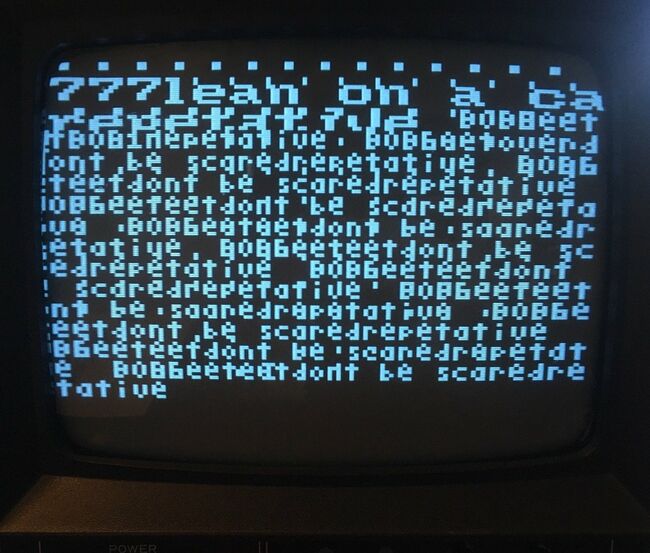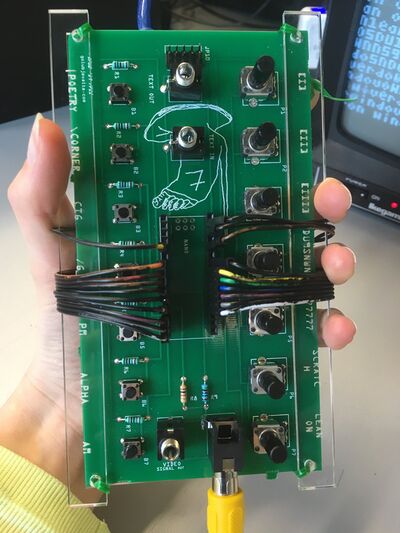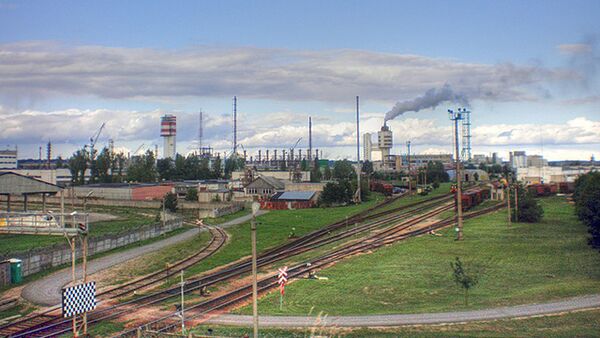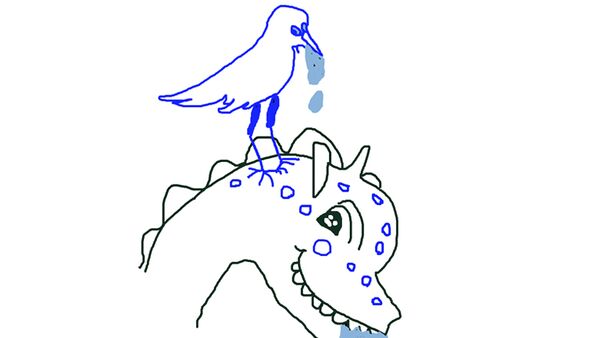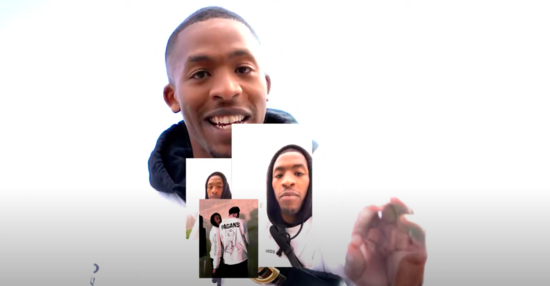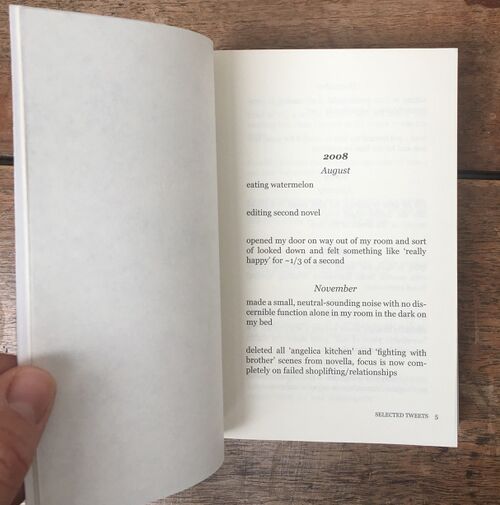User:Golubjevaite/hackpact: Difference between revisions
Golubjevaite (talk | contribs) |
Golubjevaite (talk | contribs) |
||
| (85 intermediate revisions by the same user not shown) | |||
| Line 1: | Line 1: | ||
<div style="font-family: Menlo;padding:20px; width: 600px;"><div class="noautonum"; style= "float:left">__TOC__</div>🕊️🕊️🕊️🕊️🕊️🕊️🕊️🕊️🕊️🕊️🕊️🕊️🕊️🕊️🕊️🕊️🕊️🕊️🕊️🕊️🕊️🕊️🕊️🕊️🕊️🕊️🕊️🕊️🕊️🕊️🕊️🕊️🕊️🕊️🕊️🕊️🕊️🕊️🕊️🕊️🕊️🕊️🕊️🕊️🕊️🕊️🕊️🕊️🕊️🕊️🕊️🕊️🕊️🕊️🕊️🕊️🕊️🕊️🕊️🕊️🕊️🕊️🕊️🕊️🕊️🕊️🕊️🕊️🕊️🕊️🕊️🕊️🕊️🕊️🕊️🕊️🕊️🕊️🕊️🕊️🕊️🕊️🕊️🕊️🕊️🕊️🕊️🕊️🕊️🕊️🕊️🕊️🕊️🕊️🕊️🕊️🕊️🕊️🕊️🕊️🕊️🕊️🕊️🕊️🕊️🕊️🕊️🕊️🕊️🕊️🕊️🕊️🕊️🕊️🕊️🕊️🕊️🕊️🕊️🕊️🕊️🕊️🕊️🕊️🕊️🕊️🕊️🕊️🕊️🕊️🕊️🕊️🕊️🕊️🕊️🕊️🕊️🕊️🕊️🕊️🕊️🕊️🕊️🕊️🕊️🕊️🕊️🕊️🕊️🕊️🕊️🕊️🕊️🕊️🕊️🕊️🕊️🕊️🕊️🕊️🕊️🕊️🕊️🕊️🕊️🕊️🕊️🕊️🕊️🕊️🕊️🕊️🕊️🕊️🕊️🕊️🕊️🕊️🕊️🕊️🕊️🕊️🕊️🕊️🕊️🕊️🕊️🕊️🕊️🕊️🕊️🕊️🕊️🕊️🕊️🕊️🕊️🕊️🕊️🕊️🕊️🕊️🕊️🕊️🕊️🕊️🕊️🕊️🕊️🕊️🕊️🕊️🕊️🕊️🕊️🕊️🕊️🕊️🕊️🕊️🕊️🕊️🕊️🕊️🕊️</div> | |||
<div style="padding:20px; margin:20px; padding-right:40px"> | |||
= PROJECT PROPOSAL = | = PROJECT PROPOSAL = | ||
<br> | |||
[[File:meme_of_the_day_meme.png|350px|left|thumb|meme of the day]]<br><br><br><br><br><br><br><br><br><br><br><br><br><br><br><br><br><br> | |||
<br><br> | |||
== what do you want to make? == | == what do you want to make? == | ||
<br> | <br> | ||
' | > when originally writing from a vocal position how could a writer's voice be preserved within a stand alone publication?<br> | ||
> new ways of performing poetics ? what else could there potentially be apart from traditional spoken word in front of an audience on stage in an awfully quiet room? <br> | |||
> | > writing without the need to organize and arrange a poem in a specific order. giving freedom to a reader to navigate through a narrative at their own pace and with their own direction.<br> | ||
> | > collaborative writing in order to challenge the traditional writer - reader relationship.<br> | ||
> | > what does it mean to read in post-digital? since we already are practicing new behaviors of reading when we scan through content while browsing the web, I am interested in these new habits and how our cognitive abilities like memory are effected by it.<br> | ||
> composing chaotic poetics and deciphering them through intuition.<br> | |||
> I would describe myself as a maker first | > how could computation be used to develop new forms of narrative? | ||
> The prototype I am currently working on is text to web-content | |||
These are the questions I want to address in my practice based research. For my project I want to produce a series of prototypes (tools) that would focus on alternative ways of writing , reading, publishing and performing poetics. I see these tools as poetic-narrative-devices, that would react according to the input of one or multiple users, and perform independently on their own. <br><br> | |||
== why do you want to make it ? == | |||
<br> | |||
<pre> "the type of experiences you can have from books, do not have to be delivered by books" - John Cayley </pre> | |||
> I miss more urban and novel ways of working with literature, something that would authentically represent the current time and my own generation as well as people with different cognitive skills. A big motivation for this project comes from a personal frustration dealing with traditional literature, particularly in academic circumstances. From a young age I struggled with reading as well as communicating what I needed/wanted through linear paragraphs of text. Nonetheless I am interested in telling narratives and speaking my mind and sharing my voice through writing and my artistic practice. By engaging with computation I see a potential to bring my individual practice to a place where I could experiment with my text-based works (& other) on my own terms without needing to compromise to mainstream software or print. I see this as a possibility to start diving in and working within the field of my interests in a different way than I did before, more in control of the tech-mediums I use. I like to describe myself as a maker first because I tend to come to conclusions best through an active hands-on process. I cannot give a full and concrete description of what the end result exactly will look like, but I can describe the direction that I am going towards. I like taking this approach because it helps me to discover more as I go along the way, which is also how I want users to experience my work. I would be happy to share my final results/tools and collaborate further with people who are interested in similar topics and questions after my graduation. I find it the most exciting when I discover creative individuals or collectives who try to question, push, reimagine, reshuffle structures surrounding them and their art. The ultimate goal of my practice is to examine how these new anti-structures might operate, by building prototypes which will explore the relationship between writer and reader. <br><br> | |||
== relation to previous practice == | |||
<br> | |||
A brief description of my previous practice:<br> | |||
> Recent years my works have often been process-based. I believe a different day calls for a different result and a version. Frequent recycling, remixing, modifying, updating of my projects has been an important part of my artistic practice. I often build up my projects by shifting between mediums while focused on specific topics. I am interested in how by taking a different form the language of the form is affected . How a deformed original shape deforms its speech with it and if it does ? How the first shape influence the further one and so on . A certain phase of a constant metamorphosis - hybrid - merge. The fragile aspect of relevance is important to me, to feel that the work is living its proper time.<br> | |||
=== /// WEBLEEDLIKEG.com === | |||
<br> | |||
<div style="font-family: Menlo; padding-left:100px; padding-right:100px;">[[File:wblg.png|900px|thumb|left|WEBLEEDLIKEG.com / the last webpage / screenshot of the interface in action]]</div><br><br><br><br><br><br><br><br><br><br><br><br><br><br><br><br><br><br><br><br><br><br><br><br><br> | |||
> My first attempt to experiment with a form of a publication was [https://www.webleedlikeg.com/pages/29.html [> WEBLEEDLIKEG.com <]] | |||
I had a collection of poems that I wanted to publish and naturally I printed and binded it into a book at first. However very rapidly I felt dissatisfied with the result, it felt somewhat inappropriate to use print as the format. The poems lost that [a]live element and voice that I had while drafting them in the first place. I really wanted to bring them back to that raw stage. I did not want my writing to end up in a dusty and perhaps unreachable place. Apart from that my writing process was influenced a lot by the apps and software I was using at the time, which settled my decision to (re)publish it in a digital format instead - I made a website. By working with HTML and Javascript I could add dynamic content and functionalities to my publication + i could let readers to interact with the poetics more independently. <br> | |||
- - - - - - - - - - - - - - - - - - - - - - - - - - - - - - - - - - - <br> | |||
{{#widget:video|mp4=https://pzwiki.wdka.nl/mw-mediadesign/images/d/d4/Wblg_2cut.mp4}}<br> | |||
WEBLEEDLIKEG-IRL / video snippet from the performance / Amsterdam / ~ 1 minute<br> | |||
<br> | |||
- - - - - - - - - - - - - - - - - - - - - - - - - - - - - - - - - - - <br> | |||
WEBLEEDLIKEG on Mutant Radio [[https://soundcloud.com/mutantradio/golubjevaite-so-ao-hosted-by / listen to the audio]] / Tbilisi, Georgia / hosted by [[https://pzwiki.wdka.nl/mediadesign/User:E.zn Vo Ezn]] / performance on the radio / 19 minutes <br> | |||
- - - - - - - - - - - - - - - - - - - - - - - - - - - - - - - - - - - <br> | |||
<br> | |||
> Working on the website had futher led me to developing a live act as well, something I call WEBLEDDLIKEG-IRL. I describe it as "a performance that deals with a release of a female voice - off the leash and into the social abyss" , meaning that even though there is always a risk for the message to be lost in poetry readings etc. the actual presence of a voice is more important to me. The perfomance usually goes for 15-25mins and it involves me mixing my audio recordings (some of it is on the website) on turntables + me vocaly shuffling through my collection of poems. Influenced alot by dj sets - even when you are reusing a playlist, the mix will sound different everytime. | |||
<br><br> | |||
=== /// SEVEN['7'] === | |||
[[File:sevenscrn.jpeg|650px|left|thumb|['7'] / poem print on a TV screen]] | |||
[[File:seventhemodule.jpg|400px|thumbnail| ['7'] / interface]] <br><br><br><br><br><br><br><br><br><br><br><br><br><br><br><br><br><br><br><br><br><br><br><br><br><br><br><br> | |||
XPUB / Special Issue 10 / SEVEN['7'] [https://pzwiki.wdka.nl/mediadesign/Golubjevaite/SpecialIssue10#seven_.5B.277.27.5D / link to documentation]<br> | |||
In the past I had to arrange my poetry in a certain way in order to submit or publish it in print, but I love the drafty nature and those early messy stages of poetry. I like the idea for a poem to be a territory and not a single path. With SEVEN I wanted to experiment with a different notion of navigating and reading poetics by giving a reader bits and impulses (drafts) of a narrative rather than a fully arranged linear story. With the interface a user could operate the poem resulting to a remixed version of it everytime. | |||
=== /// IMPLICANCIES === | |||
Special Issue 12 [https://issue.xpub.nl/12/ / link to the website]<br> | |||
- - - - - - - - - - - - - - - - - - - - - - - - - - - - - - - - - - - <br> | |||
> Implicancies #12.3 <br> | |||
> title: we_bleed_like_g_live_snippet<br> | |||
> audio : {{#widget:audio|mp3=https://pzwiki.wdka.nl/mw-mediadesign/images/2/2b/3_wblg_live_snippet.mp3}}<br> | |||
<br><br> | |||
- - - - - - - - - - - - - - - - - - - - - - - - - - - - - - - - - - - <br> | |||
> Implicancies #12.5 <br> | |||
> title: a_smile<br> | |||
> audio: {{#widget:audio|mp3=https://pzwiki.wdka.nl/mw-mediadesign/images/e/ec/A_smile.mp3}}<br> | |||
[[File:a_smile_pic.jpg|600px|thumb|left|image accompanying the audio tack]] | |||
<br><br><br><br><br><br><br><br><br><br><br><br><br><br><br><br><br><br><br><br> | |||
- - - - - - - - - - - - - - - - - - - - - - - - - - - - - - - - - - - <br> | |||
> Implicancies #12.6 <br> | |||
> title : a_memory_inside_a_plastic_card<br> | |||
> audio: {{#widget:audio|mp3=https://pzwiki.wdka.nl/mw-mediadesign/images/7/72/A_memory_inside_a_plastic_card.mp3}}<br> | |||
[[File:a_memory_inside_a_plastic_card_pic.jpg|600px|thumb|left|image accompanying the audio tack]] | |||
<br><br><br><br><br><br><br><br><br><br><br><br><br><br><br><br><br><br><br><br><br><br> | |||
== prototype sketch == | |||
<br> | |||
> A prototype I am currently dreaming about and working on is text to web-content device. Basically a device that will take text as an input and will output an ongoing story on a webpage, where a reader will be able to further configure the content of the story. This is a rough sketch and some notes bellow. | |||
<pre> | <pre> | ||
(input1) |-------------------output-------------------| (input2) | |||
TEXT | POEM | CONFIGURATION | |||
| (img, sound, txt, video) | | |||
WRITER --->---->---->----> | DATABASE ---> ----> -----> ---> WEBPAGE |<--<--<--->-->--> READER is a WRITER2 | |||
| | | |||
| | | |||
|--------------------------------------------| | |||
</pre> | </pre> | ||
'''[ | '''[input1]'''<br> | ||
> | > a writer provides text<br> | ||
> | > any type of text can be the input<br> | ||
> any language can be used<br> | |||
> text is collected and stored in the database | |||
'''[output]'''<br> | '''[output]'''<br> | ||
> | > database = collection of images, sound recordings, moving images, texts<br> | ||
> | > webpage displays content in response to the incoming text <br> | ||
> the web-content updates as long as new text (input1)<br> | |||
'''[input2]'''<br> | '''[input2]'''<br> | ||
> | > readers navigate through the content <br> | ||
> | > readers manipulate content further from the browser side position | ||
<br><br> | |||
//// <br> | == relation to a larger context == | ||
> | <br> | ||
[[File:jm-screenshot.png|550px|thumbnail|left| James Massiah performing Shook to Death]]<br><br><br><br><br><br><br><br><br><br><br><br><br><br><br><br><br> | |||
== how | >> James Massiah is a poet & DJ from London, UK whose work explores ideas about sexuality, mortality & ethics through performance, writing & visual media. I first discovered his work through NTS (online radio) where he hosts [[https://www.nts.live/shows/the-new-funk-breakfast-show a POETRY SHOW]] every month. I have been reading and [[https://jamesmassiah.bandcamp.com/album/euthanasia-party-twenty-seven listening]] to his work for a few years now and I admire how precisely he captures present time as well as his attempts to rethink the mediums through which writers and performers deliver their work.<br> | ||
<br> | |||
- - - - - - - - - - - - - - - - - - - - - - - - - - - - - - - - - - - <br> | |||
<br> | |||
[[File:deathgrips.gif|600px|thumbnail|left|death grips - excerpt from the video]]<br><br><br><br><br><br><br><br><br><br><br><br><br><br><br><br> | |||
>> <u>Death Grips - I've Seen Footage (Official Video) [https://www.youtube.com/watch?v=DigtCrO77L8 / watch the video]</u><br> | |||
I love this Death Grips video - composed completely out of images, which I relate a lot to my project and the questions I have about human cognitive skills. The experience watching this video is definetely intense at first and the footage might barely makes sense too. However if you manage to keep your eyes on the screen and concentrate for a longer period of time, it is possible to grasp a timeline and a storyline. The experience changes with every replay.<br> | |||
<br> | |||
- - - - - - - - - - - - - - - - - - - - - - - - - - - - - - - - - - - <br> | |||
<br> | |||
[[File:slectedtweets.jpg|500px|thumbnail|left|"selected tweets" - pages from the book ]]<br><br><br><br><br><br><br><br><br><br><br><br><br><br><br><br><br><br><br><br><br><br><br><br><br><br> | |||
>> <u>Mira Gonzalez & Tao Lin - Selected Tweets</u><br> | |||
The book is a compendium of tweets written over the course of ten years, sometimes under their own names, sometimes using assumed names. Mira and Tao both approach tweets as a viable potential literary form. I have been posting as well as drafting alot of my own work on Twitter. Is Twitter the new Haiku? No, I dont think it is, but it is a text-based interface and stimulates as well as influences a way of writing, which I find interesting.<br> | |||
<br> | |||
- - - - - - - - - - - - - - - - - - - - - - - - - - - - - - - - - - - <br> | |||
<br> | |||
>> <u>Electronic Literature and Future Books [https://www.youtube.com/watch?v=cvjzcF0Iigw&t=5s / video link]</u><br> | |||
Presentations and a discussion between Katherine Hayles, Rita Raley & Nick Montfort <br> | |||
A few questions and points that have been addressed in this talk, that are of the same interest as mine:<br> | |||
> how the process of writing have been affected by computation & networks?<br> | |||
> "Distracted reading is now becoming not just a reading practice but cultural practice to which writers are responding." - K. Hayles<br> | |||
> " Talan Memmott / LEXIA TO PERPLEXIA [http://talanmemmott.info/wp-content/uploads/2015/10/memmott.work-lexiatoperplexia.pdf/ link] which makes normative, makes the standard, the state of perplexity so in other words rather than thinking about a kind of deviation from long forms of narrative, deviation from sustained practices of attention, it makes disorientation the standard from which one would have to imagine that a shift back to what we now regard as traditional forms of reading would be the deviation" - R. Raley<br> | |||
> Electronic Literature Collection [https://collection.eliterature.org / link]<br> | |||
<br> | |||
- - - - - - - - - - - - - - - - - - - - - - - - - - - - - - - - - - - <br> | |||
<br> | |||
>> <u>John Cayley: The Future of Language [https://www.youtube.com/watch?v=lXD21PQTqjY&list=PLzABYZ7-qGW7j9vrSRjU1aBZI07aZZuNF&index=30&t=522s / video link]</u><br> | |||
A few interesting points from this talk, that I connect with:<br> | |||
> our relationship with language is changed not only by photography and film (as stated by Flusser) but also by computation (as added by Cayley himself).<br> | |||
> the relationship of language and symbolic practice to images has changed<br> | |||
> there is always a relationship with orality for humans as you read<br> | |||
> memory is non linear | |||
<br><br> | |||
== to do list == | |||
<br> | <br> | ||
* Make an IRC_bot & make it "listen" to the input text | * Make an IRC_bot & make it "listen" to the input text | ||
* Research on different data storages (Wikidata, archive.org, etc.) | * Research on different data storages (Wikidata, archive.org, etc.) | ||
* Explore | * Explore web search engines & possibility to download web-content with a help of a bot (Python / bash) | ||
* Look into other Python/ Bash tools to grab/download content (youtube-dl/videogrep/pytube etc.) | * Look into other Python/ Bash tools to grab/download content (youtube-dl/videogrep/pytube etc.) | ||
* other Python libraries for manipulating and editing img, sound, video, txt (imagemagick, pillow, ffmpeg, nltk, webvtt, etc.) | * other Python libraries for manipulating and editing img, sound, video, txt (imagemagick, pillow, ffmpeg, nltk, webvtt, etc.) | ||
| Line 56: | Line 163: | ||
* Look into live editing the webpage/ content manipulation tools/ RGB split etc. | * Look into live editing the webpage/ content manipulation tools/ RGB split etc. | ||
* Test the prototypes with a help of other people and gather some feedback / XPUB & friends, and using Mastodon perhaps to find people outside my circle (as Marloes suggested). | * Test the prototypes with a help of other people and gather some feedback / XPUB & friends, and using Mastodon perhaps to find people outside my circle (as Marloes suggested). | ||
<br> | |||
//// | //// | ||
<br> | <br> | ||
| Line 62: | Line 169: | ||
> A single or multiple users will have the possibility to join an IRC chatroom and contribute (to write) some text (narrative). An IRC_bot [https://git.xpub.nl/XPUB/python-irc-bots/src/branch/master/reversebot.py / link] joins a dedicated IRC channel and "listens" - collects the text.<br> | > A single or multiple users will have the possibility to join an IRC chatroom and contribute (to write) some text (narrative). An IRC_bot [https://git.xpub.nl/XPUB/python-irc-bots/src/branch/master/reversebot.py / link] joins a dedicated IRC channel and "listens" - collects the text.<br> | ||
> Then I want to try out 2 ways of providing AV content for the website:<br> | > Then I want to try out 2 ways of providing AV content for the website:<br> | ||
a. After the bot gets some input it runs a search on the | a. After the bot gets some input it runs a search on the web for some content material and downloads it to a folder, dedicated to the webpage. For now I worked with DuckDuckGo [https://pypi.org/project/DuckDuckGo-Python3-Library / link] for images, which worked pretty well, but I want to explore other possibilities for other type of content.<br> | ||
b. I want to install a MediaWiki and create a personal database with my own collection of AV material. Then connect the bot to the API, so it retrieves the content from the Wiki, whenever needed.<br> | b. I want to install a MediaWiki and create a personal database with my own collection of AV material. Then connect the bot to the API, so it retrieves the content from the Wiki, whenever needed.<br> | ||
> There will be other Python scripts that will help to manipulate the downloaded material in between the process, into a final visible content, that will then finally appear on a webpage (to read).<br> | > There will be other Python scripts that will help to manipulate the downloaded material in between the process, into a final visible content, that will then finally appear on a webpage (to read).<br> | ||
> Apart from that I want there to be some additional tools (probably made with Javascript) on the webpage itself that would let a visitor (a reader) to manipulate (to write) the content (narrative) further. I want a single or multiple users have the possibility to browse the website and manipulate the content live together.<br> | > Apart from that I want there to be some additional tools (probably made with Javascript) on the webpage itself that would let a visitor (a reader) to manipulate (to write) the content (narrative) further. I want a single or multiple users have the possibility to browse the website and manipulate the content live together.<br> | ||
> The final presentation of this project as I imagine it now would be in a performative & interactive way - showcasing the prototypes live. People will be able to visit the webpage as well as to join inside a dedicated IRC chat room.<br> | > The final presentation of this project as I imagine it now would be in a performative & interactive way - showcasing the prototypes live. People will be able to visit the webpage as well as to join inside a dedicated IRC chat room. | ||
<br><br> | |||
== | == timetable == | ||
<br> | <br> | ||
<u>oct - nov:</u><br> | <u>oct - nov:</u><br> | ||
<s>1 . find a topic of interest<br> | <s>1 . find a topic of interest<br> | ||
2. | 2. first hackpacts<br> | ||
3. write the project proposal + thesis outline<br> | 3. write the project proposal + thesis outline<br> | ||
4. begin IRC_bot making<br> | 4. begin IRC_bot making<br> | ||
5. looking into Python libraries/ basics</s><br> | 5. looking into Python libraries/ basics</s><br> | ||
6. search engines <s>(DuckDuckGo,</s> Google) & mediadatabases (WikiData, archive.org)<br> | 6. search engines <s>(DuckDuckGo,</s> Google) & mediadatabases (WikiData, archive.org)<br> | ||
<br> | |||
<u>dec - jan</u><br> | <u>dec - jan</u><br> | ||
| Line 85: | Line 193: | ||
4. continue with Python libraries <br> | 4. continue with Python libraries <br> | ||
5. start with webpage development<br> | 5. start with webpage development<br> | ||
6. contact some poets/artist and start a conversation<br> | |||
<u>feb</u><br> | <u>feb</u><br> | ||
| Line 101: | Line 210: | ||
<u>may</u> <br> | <u>may</u> <br> | ||
1. Wrap it up & make it presentable for the graduation<br> | 1. Wrap it up & make it presentable for the graduation<br> | ||
2. Share on Git(?)<br> | 2. Share on Git(?) | ||
<br><br> | |||
== | == who can help you and how? == | ||
<br> | <br> | ||
< | > XPUB teachers and fellow comrades. Feedback, advice, technical help.<br> | ||
> Antrianna Moutoula - friend-artist-performer who experiments with writing as part of her practice and incorporates live-text-composing in her performances. I would like to ask her for feedback on tools and even to see if there is a possibility to collaborate.<br> | |||
> Florian Cramer , perhaps for some feedback or general talk session, since he wrote Words Made Flesh (tho i still need to read that fully)<br> | |||
> This is more related to the thesis part, but I would like to give a try and contact some of the poets whos work I have been following + fellow artists who I know are busy with writing poetics. To have a chat related to my project, to get more insight to other people practices and how they deal with publishing their work. | |||
<br><br> | |||
== bibliography == | |||
== | |||
<br> | <br> | ||
''Nancy Katherine Hayles. Electronic Literature : New Horizons for the Literary. Notre Dame, Ind, University Of Notre Dame, 2010.'' <BR> | ''Nancy Katherine Hayles. Electronic Literature : New Horizons for the Literary. Notre Dame, Ind, University Of Notre Dame, 2010.'' <BR> | ||
''2015. | ''Krysa, J., Parikka, J., Kurenniemi, E. and Huhtamo, E., 2015. Writing And Unwriting (Media) Art History. Cambridge (Massachusetts): The MIT Press, pp.97-107.<br>'' | ||
''Aarseth, E. J. (1997). Cybertext: Perspectives on Ergodic Literature. Baltimore, MD: Johns Hopkins University Press.<br>'' | ''Aarseth, E. J. (1997). Cybertext: Perspectives on Ergodic Literature. Baltimore, MD: Johns Hopkins University Press.<br>'' | ||
''Ludovico, A. (2013). Post-Digital Print: The mutation of publishing since 1894. Onomatopee.<br>'' | ''Ludovico, A. (2013). Post-Digital Print: The mutation of publishing since 1894. Onomatopee.<br>'' | ||
''Cramer, F., 2005. Words Made Flesh. Rotterdam: Piet Zwart Institute.'' | ''Cramer, F., 2005. Words Made Flesh. Rotterdam: Piet Zwart Institute.''<br> | ||
''Rettberg, S. (2018). Electronic Literature. Oxford, England: Polity Press.'' | |||
<br><br> | |||
</div> | |||
< | |||
</ | |||
= * = | |||
previous [[https://pzwiki.wdka.nl/mediadesign/User:Golubjevaite/prdraft draft]] | |||
Latest revision as of 18:51, 5 December 2020
PROJECT PROPOSAL
what do you want to make?
> when originally writing from a vocal position how could a writer's voice be preserved within a stand alone publication?
> new ways of performing poetics ? what else could there potentially be apart from traditional spoken word in front of an audience on stage in an awfully quiet room?
> writing without the need to organize and arrange a poem in a specific order. giving freedom to a reader to navigate through a narrative at their own pace and with their own direction.
> collaborative writing in order to challenge the traditional writer - reader relationship.
> what does it mean to read in post-digital? since we already are practicing new behaviors of reading when we scan through content while browsing the web, I am interested in these new habits and how our cognitive abilities like memory are effected by it.
> composing chaotic poetics and deciphering them through intuition.
> how could computation be used to develop new forms of narrative?
These are the questions I want to address in my practice based research. For my project I want to produce a series of prototypes (tools) that would focus on alternative ways of writing , reading, publishing and performing poetics. I see these tools as poetic-narrative-devices, that would react according to the input of one or multiple users, and perform independently on their own.
why do you want to make it ?
"the type of experiences you can have from books, do not have to be delivered by books" - John Cayley
> I miss more urban and novel ways of working with literature, something that would authentically represent the current time and my own generation as well as people with different cognitive skills. A big motivation for this project comes from a personal frustration dealing with traditional literature, particularly in academic circumstances. From a young age I struggled with reading as well as communicating what I needed/wanted through linear paragraphs of text. Nonetheless I am interested in telling narratives and speaking my mind and sharing my voice through writing and my artistic practice. By engaging with computation I see a potential to bring my individual practice to a place where I could experiment with my text-based works (& other) on my own terms without needing to compromise to mainstream software or print. I see this as a possibility to start diving in and working within the field of my interests in a different way than I did before, more in control of the tech-mediums I use. I like to describe myself as a maker first because I tend to come to conclusions best through an active hands-on process. I cannot give a full and concrete description of what the end result exactly will look like, but I can describe the direction that I am going towards. I like taking this approach because it helps me to discover more as I go along the way, which is also how I want users to experience my work. I would be happy to share my final results/tools and collaborate further with people who are interested in similar topics and questions after my graduation. I find it the most exciting when I discover creative individuals or collectives who try to question, push, reimagine, reshuffle structures surrounding them and their art. The ultimate goal of my practice is to examine how these new anti-structures might operate, by building prototypes which will explore the relationship between writer and reader.
relation to previous practice
A brief description of my previous practice:
> Recent years my works have often been process-based. I believe a different day calls for a different result and a version. Frequent recycling, remixing, modifying, updating of my projects has been an important part of my artistic practice. I often build up my projects by shifting between mediums while focused on specific topics. I am interested in how by taking a different form the language of the form is affected . How a deformed original shape deforms its speech with it and if it does ? How the first shape influence the further one and so on . A certain phase of a constant metamorphosis - hybrid - merge. The fragile aspect of relevance is important to me, to feel that the work is living its proper time.
/// WEBLEEDLIKEG.com
> My first attempt to experiment with a form of a publication was [> WEBLEEDLIKEG.com <]
I had a collection of poems that I wanted to publish and naturally I printed and binded it into a book at first. However very rapidly I felt dissatisfied with the result, it felt somewhat inappropriate to use print as the format. The poems lost that [a]live element and voice that I had while drafting them in the first place. I really wanted to bring them back to that raw stage. I did not want my writing to end up in a dusty and perhaps unreachable place. Apart from that my writing process was influenced a lot by the apps and software I was using at the time, which settled my decision to (re)publish it in a digital format instead - I made a website. By working with HTML and Javascript I could add dynamic content and functionalities to my publication + i could let readers to interact with the poetics more independently.
- - - - - - - - - - - - - - - - - - - - - - - - - - - - - - - - - - -
WEBLEEDLIKEG-IRL / video snippet from the performance / Amsterdam / ~ 1 minute
- - - - - - - - - - - - - - - - - - - - - - - - - - - - - - - - - - -
WEBLEEDLIKEG on Mutant Radio [/ listen to the audio] / Tbilisi, Georgia / hosted by [Vo Ezn] / performance on the radio / 19 minutes
- - - - - - - - - - - - - - - - - - - - - - - - - - - - - - - - - - -
> Working on the website had futher led me to developing a live act as well, something I call WEBLEDDLIKEG-IRL. I describe it as "a performance that deals with a release of a female voice - off the leash and into the social abyss" , meaning that even though there is always a risk for the message to be lost in poetry readings etc. the actual presence of a voice is more important to me. The perfomance usually goes for 15-25mins and it involves me mixing my audio recordings (some of it is on the website) on turntables + me vocaly shuffling through my collection of poems. Influenced alot by dj sets - even when you are reusing a playlist, the mix will sound different everytime.
/// SEVEN['7']
XPUB / Special Issue 10 / SEVEN['7'] / link to documentation
In the past I had to arrange my poetry in a certain way in order to submit or publish it in print, but I love the drafty nature and those early messy stages of poetry. I like the idea for a poem to be a territory and not a single path. With SEVEN I wanted to experiment with a different notion of navigating and reading poetics by giving a reader bits and impulses (drafts) of a narrative rather than a fully arranged linear story. With the interface a user could operate the poem resulting to a remixed version of it everytime.
/// IMPLICANCIES
Special Issue 12 / link to the website
- - - - - - - - - - - - - - - - - - - - - - - - - - - - - - - - - - -
> Implicancies #12.3
> title: we_bleed_like_g_live_snippet
> audio :
- - - - - - - - - - - - - - - - - - - - - - - - - - - - - - - - - - -
> Implicancies #12.5
> title: a_smile
> audio:
- - - - - - - - - - - - - - - - - - - - - - - - - - - - - - - - - - -
> Implicancies #12.6
> title : a_memory_inside_a_plastic_card
> audio:
prototype sketch
> A prototype I am currently dreaming about and working on is text to web-content device. Basically a device that will take text as an input and will output an ongoing story on a webpage, where a reader will be able to further configure the content of the story. This is a rough sketch and some notes bellow.
(input1) |-------------------output-------------------| (input2)
TEXT | POEM | CONFIGURATION
| (img, sound, txt, video) |
WRITER --->---->---->----> | DATABASE ---> ----> -----> ---> WEBPAGE |<--<--<--->-->--> READER is a WRITER2
| |
| |
|--------------------------------------------|
[input1]
> a writer provides text
> any type of text can be the input
> any language can be used
> text is collected and stored in the database
[output]
> database = collection of images, sound recordings, moving images, texts
> webpage displays content in response to the incoming text
> the web-content updates as long as new text (input1)
[input2]
> readers navigate through the content
> readers manipulate content further from the browser side position
relation to a larger context
>> James Massiah is a poet & DJ from London, UK whose work explores ideas about sexuality, mortality & ethics through performance, writing & visual media. I first discovered his work through NTS (online radio) where he hosts [a POETRY SHOW] every month. I have been reading and [listening] to his work for a few years now and I admire how precisely he captures present time as well as his attempts to rethink the mediums through which writers and performers deliver their work.
- - - - - - - - - - - - - - - - - - - - - - - - - - - - - - - - - - -
>> Death Grips - I've Seen Footage (Official Video) / watch the video
I love this Death Grips video - composed completely out of images, which I relate a lot to my project and the questions I have about human cognitive skills. The experience watching this video is definetely intense at first and the footage might barely makes sense too. However if you manage to keep your eyes on the screen and concentrate for a longer period of time, it is possible to grasp a timeline and a storyline. The experience changes with every replay.
- - - - - - - - - - - - - - - - - - - - - - - - - - - - - - - - - - -
>> Mira Gonzalez & Tao Lin - Selected Tweets
The book is a compendium of tweets written over the course of ten years, sometimes under their own names, sometimes using assumed names. Mira and Tao both approach tweets as a viable potential literary form. I have been posting as well as drafting alot of my own work on Twitter. Is Twitter the new Haiku? No, I dont think it is, but it is a text-based interface and stimulates as well as influences a way of writing, which I find interesting.
- - - - - - - - - - - - - - - - - - - - - - - - - - - - - - - - - - -
>> Electronic Literature and Future Books / video link
Presentations and a discussion between Katherine Hayles, Rita Raley & Nick Montfort
A few questions and points that have been addressed in this talk, that are of the same interest as mine:
> how the process of writing have been affected by computation & networks?
> "Distracted reading is now becoming not just a reading practice but cultural practice to which writers are responding." - K. Hayles
> " Talan Memmott / LEXIA TO PERPLEXIA link which makes normative, makes the standard, the state of perplexity so in other words rather than thinking about a kind of deviation from long forms of narrative, deviation from sustained practices of attention, it makes disorientation the standard from which one would have to imagine that a shift back to what we now regard as traditional forms of reading would be the deviation" - R. Raley
> Electronic Literature Collection / link
- - - - - - - - - - - - - - - - - - - - - - - - - - - - - - - - - - -
>> John Cayley: The Future of Language / video link
A few interesting points from this talk, that I connect with:
> our relationship with language is changed not only by photography and film (as stated by Flusser) but also by computation (as added by Cayley himself).
> the relationship of language and symbolic practice to images has changed
> there is always a relationship with orality for humans as you read
> memory is non linear
to do list
- Make an IRC_bot & make it "listen" to the input text
- Research on different data storages (Wikidata, archive.org, etc.)
- Explore web search engines & possibility to download web-content with a help of a bot (Python / bash)
- Look into other Python/ Bash tools to grab/download content (youtube-dl/videogrep/pytube etc.)
- other Python libraries for manipulating and editing img, sound, video, txt (imagemagick, pillow, ffmpeg, nltk, webvtt, etc.)
- Install a MediaWiki and upload the personally collected AV material on it + connect it to the bot
- Look into live editing the webpage/ content manipulation tools/ RGB split etc.
- Test the prototypes with a help of other people and gather some feedback / XPUB & friends, and using Mastodon perhaps to find people outside my circle (as Marloes suggested).
////
A more detailed description:
> A single or multiple users will have the possibility to join an IRC chatroom and contribute (to write) some text (narrative). An IRC_bot / link joins a dedicated IRC channel and "listens" - collects the text.
> Then I want to try out 2 ways of providing AV content for the website:
a. After the bot gets some input it runs a search on the web for some content material and downloads it to a folder, dedicated to the webpage. For now I worked with DuckDuckGo / link for images, which worked pretty well, but I want to explore other possibilities for other type of content.
b. I want to install a MediaWiki and create a personal database with my own collection of AV material. Then connect the bot to the API, so it retrieves the content from the Wiki, whenever needed.
> There will be other Python scripts that will help to manipulate the downloaded material in between the process, into a final visible content, that will then finally appear on a webpage (to read).
> Apart from that I want there to be some additional tools (probably made with Javascript) on the webpage itself that would let a visitor (a reader) to manipulate (to write) the content (narrative) further. I want a single or multiple users have the possibility to browse the website and manipulate the content live together.
> The final presentation of this project as I imagine it now would be in a performative & interactive way - showcasing the prototypes live. People will be able to visit the webpage as well as to join inside a dedicated IRC chat room.
timetable
oct - nov:
1 . find a topic of interest
2. first hackpacts
3. write the project proposal + thesis outline
4. begin IRC_bot making
5. looking into Python libraries/ basics
6. search engines (DuckDuckGo, Google) & mediadatabases (WikiData, archive.org)
dec - jan
1. thesis first chapter + continue research/reading
2. pyratechnic workshop
3. continue with bot experiments
4. continue with Python libraries
5. start with webpage development
6. contact some poets/artist and start a conversation
feb
1. thesis writing
2. install MediaWiki + upload personal collection
3. MediaWiki API
4. look into javascript possibilities for the webpage/ basics
5. have some test & feedback sessions with ppl
march - april
1. Finish writing thesis
2. Make further decisions/ changes/ improvements / remix on the prototypes according to the feedback & personal observations
3. Further webpage development/ configuration options / javascript
4. Test again
may
1. Wrap it up & make it presentable for the graduation
2. Share on Git(?)
who can help you and how?
> XPUB teachers and fellow comrades. Feedback, advice, technical help.
> Antrianna Moutoula - friend-artist-performer who experiments with writing as part of her practice and incorporates live-text-composing in her performances. I would like to ask her for feedback on tools and even to see if there is a possibility to collaborate.
> Florian Cramer , perhaps for some feedback or general talk session, since he wrote Words Made Flesh (tho i still need to read that fully)
> This is more related to the thesis part, but I would like to give a try and contact some of the poets whos work I have been following + fellow artists who I know are busy with writing poetics. To have a chat related to my project, to get more insight to other people practices and how they deal with publishing their work.
bibliography
Nancy Katherine Hayles. Electronic Literature : New Horizons for the Literary. Notre Dame, Ind, University Of Notre Dame, 2010.
Krysa, J., Parikka, J., Kurenniemi, E. and Huhtamo, E., 2015. Writing And Unwriting (Media) Art History. Cambridge (Massachusetts): The MIT Press, pp.97-107.
Aarseth, E. J. (1997). Cybertext: Perspectives on Ergodic Literature. Baltimore, MD: Johns Hopkins University Press.
Ludovico, A. (2013). Post-Digital Print: The mutation of publishing since 1894. Onomatopee.
Cramer, F., 2005. Words Made Flesh. Rotterdam: Piet Zwart Institute.
Rettberg, S. (2018). Electronic Literature. Oxford, England: Polity Press.
*
previous [draft]

